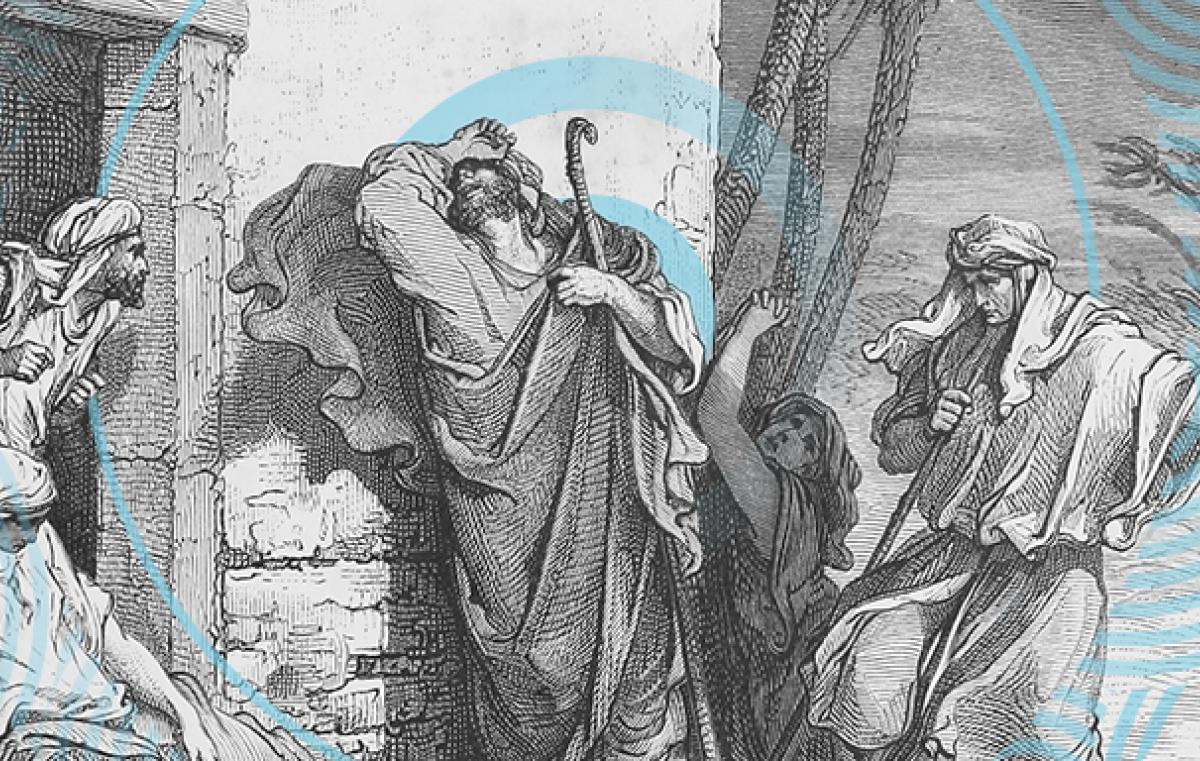Research: My Research on the Book of Job and Its Ancient Eastern Roots
Nowadays, with a lethal virus attacking all countries around the world, many ask the question that has been on people’s minds since the beginning of the most ancient literature in Egypt and Mesopotamia: what causes disaster?

Prof. Eliezer (Ed) Greenstein
Department of Bible
Nowadays, with a lethal virus attacking all countries around the world, many ask the question that has been on people’s minds since the beginning of the most ancient literature in Egypt and Mesopotamia: what causes disaster? Where does anguish comes from? Is there anything we can do to escape them? The leading American newspaper, Publisher’s Weekly, recently dedicated an article on this topic while focusing on new books that deal with the Book of Job, that famed piece discussing what philosophers call “the problem of evil” (a righteous man feels bad, an evil man feels good). The first book discussed in the article is my own, published last year and now re-published in paperback: an exact literary translation of the Book of Job into English, with a preface and notes intended for researchers, students and the general public (Yale University Publishing). Happily, this book – based on decades of research – attracted much attention and was very well-received, partly due to my rather innovative interpretation that the Book of Job favors independent thinking and criticism, and highly values commitment to the truth. Job is a brave man that dares to say what he believes to be right, even in the presence of God, and does not relinquish his claims to the very end.
I am currently continuing my studies and writing about the Book of Job; among other things, I am preparing interpretations and a collection of my own articles, commissioned by academic publishers. However, as mentioned, critical questions about reality began in ancient times, and I have spent the past few months diving into the wise literature of Mesopotamia, one of the literary movements from which the Book of Job originates. For instance, I have carefully reread a prayer by an avid man who addresses the Biblical Nabu, one of the gods of authors, in order to take away his misery. Since he is believed to have discovered the appropriate awe towards the god, he wondered about the pain he suffered, once again similar to Job. Like Job, he seeks to know why he cannot gain the forgiveness of his god for his alleged crimes, and where the god’s instructions are that can lead to his salvation. Similarly to he who begs in Psalms, he declares: “Cast me not off!” Indeed, the aforementioned praying man, during the Neo-Assyrian period (the first half of the first millennium BCE), claims he had always clung to the “truth” (the Assyrian word ‘kettu’, derived from ‘chon’ just like ‘nechona’ [true], the form Job used to speak to/of God). In the Assyrian prayer, there is no reply from the god, but in another Mesopotamian piece there is an argument between the complaining man and his friend, much like in the Book of Job, and in that other piece there is a reply from the god, just as in Book of Job. However, the Book of Job is much more complex, in every way, and reaches a transcendent height that is simply incomparable.